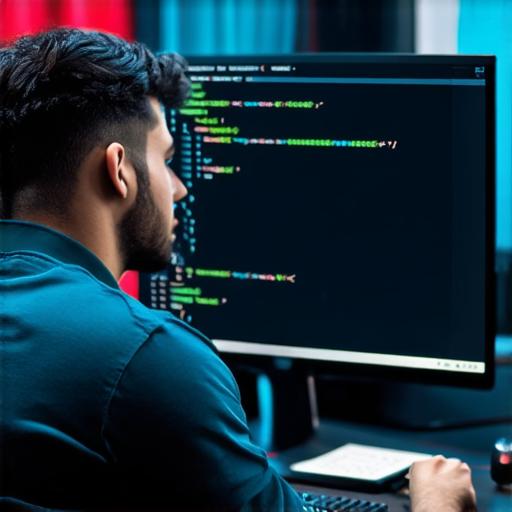
Choosing a Programming Language
The first step in becoming a software developer is selecting a programming language to learn. There are many options available, each with its own strengths and weaknesses. Some popular languages include Python, Java, JavaScript, Ruby, and C++.
When choosing a language, consider your interests and what you want to achieve. For example, if you’re interested in web development, JavaScript or Python may be the best choices for you. If you’re looking to build games or mobile apps, C++ or Java may be more suitable.
Python is an excellent language for beginners because it is easy to learn and has a large community of developers who are willing to help. It also has a wide range of applications, including data science, machine learning, and web development.
Java is another great option for beginners. It’s a popular language used in enterprise software development and can be used for building Android apps.
JavaScript is the most widely-used programming language on the internet. If you want to build websites, you should definitely learn JavaScript.
Ruby is an excellent choice if you want to build web applications quickly. It has a small community of developers but is gaining popularity due to its simplicity and speed.
C++ is a powerful language that is commonly used in game development and system programming. If you’re interested in building high-performance software, C++ may be the best choice for you.
Ultimately, the choice of programming language will depend on your goals and interests. We recommend starting with a general-purpose language like Python or Java and then specializing in a particular area as you gain more experience.
Learning to Code
Once you’ve chosen a programming language, it’s time to start learning how to code. There are many resources available online that can help you get started, including tutorials, videos, and interactive exercises. Some popular resources include Codecademy, Udemy, Coursera, and edX.
One of the best ways to learn to code is by doing. Practice coding regularly and work on small projects to build your skills and gain confidence. You can find plenty of project ideas online or come up with your own.
It’s also important to have a solid understanding of the basics of programming, such as data types, variables, control structures, and functions. Make sure to spend time learning these concepts before moving on to more advanced topics.
Joining a Community
Learning to code can be challenging, and it’s essential to have a supportive community around you. Join online forums, attend meetups, or find a mentor who can help you along the way.
One of the most important benefits of joining a community is that you can learn from other developers and get feedback on your work. You can also ask questions and seek advice when you’re stuck.
Building Your First Project
Once you’ve learned the basics of programming, it’s time to build your first project. This could be anything from a simple program that calculates the area of a circle to a web application that displays real-time stock prices.
When building your first project, focus on simplicity and functionality. Don’t worry about making it perfect; the goal is to learn and gain experience. You can always refine and improve your project later on.
Benefits of Learning to Code
Learning to code has many benefits, both personal and professional. Here are a few examples:
- Increased earning potential – Many high-paying jobs require programming skills, and the demand for developers is growing rapidly.
- Improved problem-solving skills – Programming requires you to break down complex problems into smaller, more manageable parts. This skill can be applied in many other areas of your life.
- Increased creativity – When you learn to code, you gain the ability to create something from nothing. This can lead to increased innovation and creativity in all aspects of your life.
- Greater control over technology – With programming skills, you can build software that automates tasks or customizes your devices to suit your needs.
- Personal satisfaction – Learning to code can be a rewarding experience, and the sense of accomplishment you get from building something yourself can be very fulfilling.
FAQs
Q: What if I’m not good at math?
A: Math is important in programming, but it’s not the only factor. If you struggle with math, there are many resources available online that can help you improve your skills.
